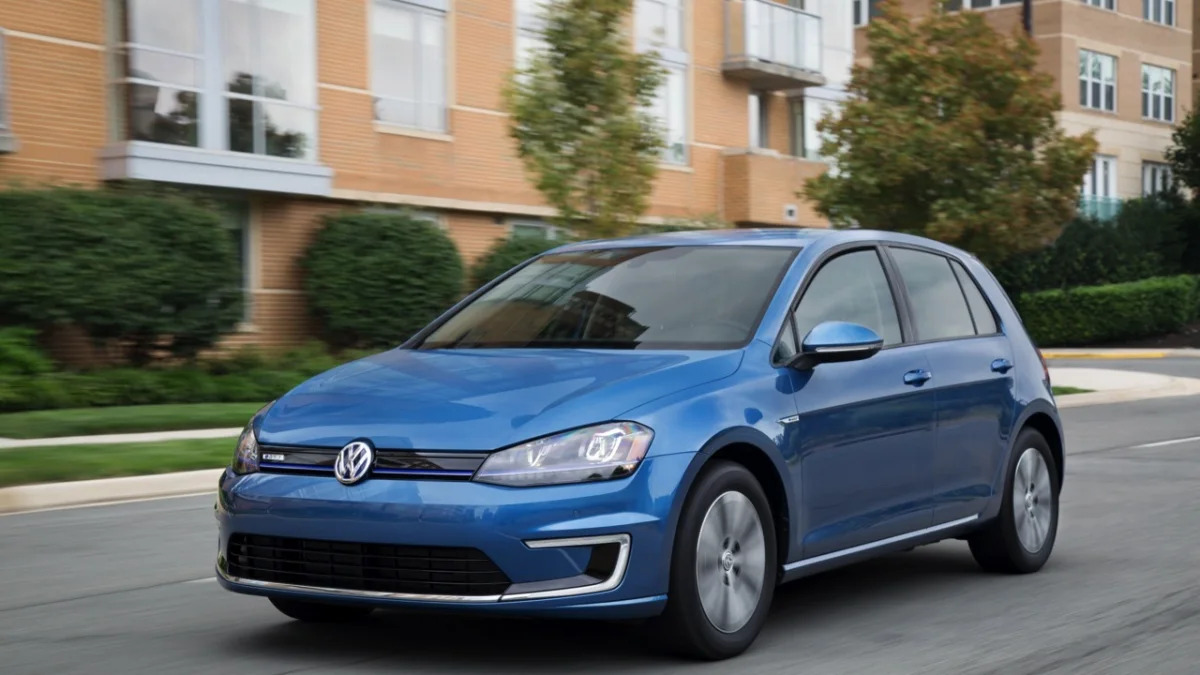Germany may take a page out of the US playbook when it comes to spurring sales of plug-in vehicles, Reuters says. Technically, it'd be more like two-thirds of a page out of that playbook as Germany tries again to meet its rather lofty goal for electric vehicle sales.
Way back in 2009, the German government stated its intention to have as many as 1 million electric cars on its roads by 2020. We're now less than four years away from that deadline, and the country shows little sign of being able to meet that goal. That's because – Volkswagen's emissions-testing snafu notwithstanding – Europeans have been predisposed to choose diesel vehicles when it comes to saving on refueling costs.
That's why the government is considering offering perks worth as much as 5,000 euros (about $5,500) for Germans who buy EVs, Reuters says, citing government officials familiar with the process (the US offers a tax rebate worth up to $7,500). Businesses would qualify for a perk worth as much as 3,000 euros per EV, though the value of the incentive would decrease by 500 euros a year, so the sooner businesses participate, the better. The most interesting catch is that the automakers themselves would be on the hook for about 40 percent of the 1.3 billion euros that the program is estimated to cost. That's not how EV incentives work elsewhere, and the plan still needs to be approved by Germany's finance ministry.
Late last year, Bain & Co. estimated that there were only about 50,000 EVs on Germany's roads, or about a quarter of the number the German government had targeted for 2015. Bain tried to be optimistic at the time, saying that falling battery prices and mandates such as allowing only EVs to drive in city centers could give a boost to those EV sales. Sweetening the price pie certainly won't hurt, either.
Related Video:
Way back in 2009, the German government stated its intention to have as many as 1 million electric cars on its roads by 2020. We're now less than four years away from that deadline, and the country shows little sign of being able to meet that goal. That's because – Volkswagen's emissions-testing snafu notwithstanding – Europeans have been predisposed to choose diesel vehicles when it comes to saving on refueling costs.
That's why the government is considering offering perks worth as much as 5,000 euros (about $5,500) for Germans who buy EVs, Reuters says, citing government officials familiar with the process (the US offers a tax rebate worth up to $7,500). Businesses would qualify for a perk worth as much as 3,000 euros per EV, though the value of the incentive would decrease by 500 euros a year, so the sooner businesses participate, the better. The most interesting catch is that the automakers themselves would be on the hook for about 40 percent of the 1.3 billion euros that the program is estimated to cost. That's not how EV incentives work elsewhere, and the plan still needs to be approved by Germany's finance ministry.
Late last year, Bain & Co. estimated that there were only about 50,000 EVs on Germany's roads, or about a quarter of the number the German government had targeted for 2015. Bain tried to be optimistic at the time, saying that falling battery prices and mandates such as allowing only EVs to drive in city centers could give a boost to those EV sales. Sweetening the price pie certainly won't hurt, either.
Related Video:










Sign in to post
Please sign in to leave a comment.
Continue